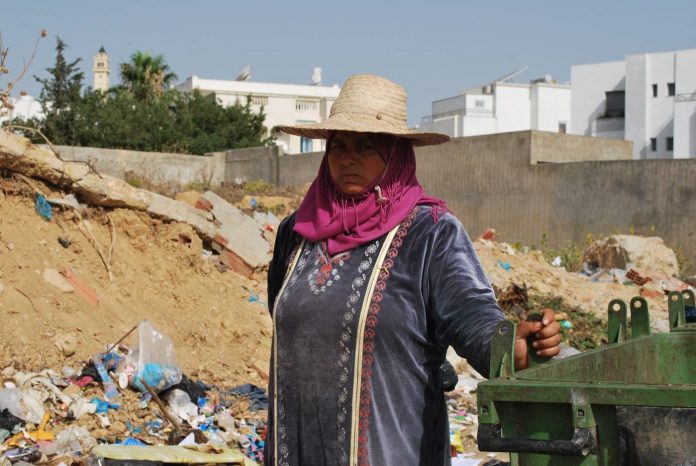By Layli Foroudi | Thomson Reuters Foundation
The system of plastic recycling in Tunisian cities is largely reliant on an informal workforce of waste pickers, known as barbechas, meaning someone who searches, digs or investigates.
And like thousands of other Tunisians who work in the informal sector, barbechas lack an official status and lead a precarious life, carrying out their jobs without workers’ rights or health insurance, say human rights activists.
Many waste pickers live in poverty, selling the waste they find to middlemen recyclers who then sell it on for a marked-up price to the national waste collection system or, more often, a private recycling factory.
“There is no legal framework that regulates (this type of) recycling,” said Mehdi Barhoumi, Tunis-based project manager for the British Non-profit International Alert.
This could change with a proposed law to establish a “social and solidarity economy” which would support collectives and self-governed businesses that both make a profit and have a social objective.
The idea is to create a halfway house between the informal sector and regular employment by giving workers the opportunity to self-organise and register their activity without setting up a company, Barhoumi explained.
He hopes the law will give Tunisia’s waste pickers better protection from health risks and exploitation by middlemen.
For now, the law, which was proposed by Tunisia’s UGTT union in 2016 and finalised a year ago, is still waiting to be debated by parliament.
But the need for it is only becoming more urgent, Barhoumi stressed.
“The number of barbechas has not stopped rising, because there is an unemployment problem (and) at the same time, there is a problem with waste management,” he said. Read more…



